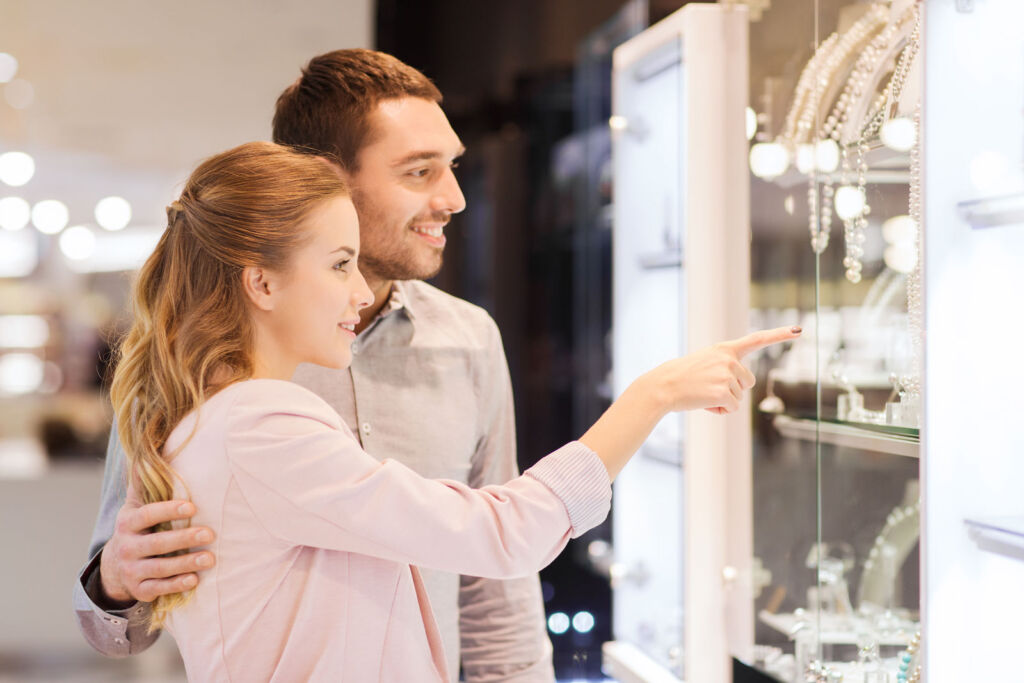

Across the world, consumers are doing what they can to reduce their impact on the planet. In countries such as China, sustainability and the planet’s health are now significant considerations before making a purchase. One way to help reverse the negative impact made by humans is by looking closer at second-hand or repurposed goods.
In my childhood days, many Brits would’ve baulked at the thought of buying or being given something second-hand. England in the 1970s was very different to what it is today, with at least one second-hand shop to be found in every major town. They would be tucked away in a side street with a haphazard mass of goods in cardboard boxes, waiting for people to dig their way through and uncover what they considered to be a treasure.


Although the attitudes of many of today’s consumers toward buying previously used items have changed, which is a positive thing for the planet, there’s still quite a way to go, and it cannot happen without big business doing its part.
Nowadays, a second-hand shop is a very rare sight in British towns. Today, the go-to place for previously owned items is a charity shop. In every built-up urban area, it’s almost impossible not to find a charity shop on the U.K.’s high streets. Perhaps, the only place you’d struggle would be the most exclusive parts of a few of the country’s major cities like London.
I grew up in a military family, and although we had all the basic necessities; a roof over our heads, clothes, somewhere to sleep, heating and food on the table, money always seemed to be tight. My late mother understood the value of money and constantly reminded my sister and me of how hard it was to earn and how easy it was to spend. Therefore, England’s second-hand shops were something of a saving grace for her, and of course, her children.
Unfortunately, some of the wealthiest people I know still view the words second-hand negatively, which is always a source of amusement when I look at the art on their walls and cabinets filled with high-value antiques, almost all of which have been owned by others and purchased through auction houses.
The words second-hand are not ones to be used selectively; they have a simple, straightforward meaning; owned by one or more parties previously. Just because one thing has a higher price tag attributed to it than another or sits within a particular sector doesn’t exclude it from being second-hand.
In 1975, I was seven years old, and the number of humans on the planet was estimated to be around four billion. In the following four decades, that number is grown to within a touching distance of eight billion. These eight billion people are or will become consumers, and companies need to find ways to cater to their ever-growing appetites, using the planet’s constantly dwindling resources.
At the beginning of this piece, I highlighted that affluent Chinese consumers attitudes have changed. In some newly released research conducted by Agility Research & Strategy (here), they discovered that almost half of the affluent Gen-Z consumers they polled now want value for their money. In addition to this, more than half of those people considered sustainability to be fundamental, and in addition, the country’s younger wealthy consumers see no problem with buying or even renting second-hand goods.
Consumer opinions towards buying second-hand are changing fast, and companies are now starting to understand this. However, there is still work to be done to change attitudes. Most people in the U.K. don’t like to think of their belongings being second-hand; however, their lives are surrounded by previously owned items. For example, in the U.K., nine out of ten properties sold are second-hand. Yet, if you said to the new owners of a home, “Your home is second-hand”, instead of accepting it as a factual statement, many would still consider it to be derogatory.
What’s needed is for second-hand to be viewed in a positive light. Fortunately, some companies are helping to make this a reality. It’s not only small bespoke companies making changes; some larger companies have also embraced the change in consumer attitudes.
For example, the cosmetics giant M.A.C. has a program where they will give you one of their standard lipsticks free of charge in exchange for six of their empty make-up containers, which will be repurposed and resold.
Another well-known company that has embraced recycling and is a personal favourite of my wife and me is the outdoor clothing brand Patagonia.
Patagonia’s recycling program is an absolute stand-out in the world of fashion sustainability. If you own an item of Patagonia clothing that still functions and is in good condition, the company offers a trade-in scheme where you will be given a very generous credit of up to $100 in return for it.
Another fantastic thing they’re doing is designing repairable products, and our American readers will be pleased to know that they also operate one of the country’s biggest clothing repair centres. All of the previously sold items accepted by the company are cleaned and made good for resale with a tag stating Patagonia ‘Worn Wear’ and consumers are snapping them up.
Another of our favourite brands offering a scheme along the same lines as Patagonia is The North Face who’s recycling program is named ‘Clothes the Loop‘. The North Face accepts gently used apparel and footwear at their stores, and in return, customers receive a $10 reward towards their next purchase of $100 or more. It’s not as generous as the scheme run by Patagonia, but given that in America alone, 11+ million tons of textile waste goes into landfills, it’s a positive step in the right direction.
These companies, along with Kiehl’s, H&M, Microsoft, Madewell and others, are proving that recycling products is a viable way forward and the stigma of something being second-hand should not be an issue, and of course, in doing this, they’re helping the planet.
The fantastic companies I’ve mentioned above will hopefully pave the way for others to do the same. Some companies will find it easier than others to run similar programs. For example, it will be easier for a jewellery company to repurpose the products they’ve made and sold compared to companies in the automotive sector. Then again, most large-scale manufacturers in the automotive sector purport to be highly skilled, so creating something similar will be much less of a task compared to the groundbreaking innovations most say they’ve made.
I realise that many large companies with shareholders will be averse to change; after all, the ‘name of the game’ is to make as much money as possible. However, given the announcements at COP26 and the constant news media headlines, it’s inevitable that many shareholder expectations will need to change, and companies will need to adapt how they operate.
It’s not the older generation who needs to change their habits, it’s the younger generations
The people from my generation and those who came before us seem to be the ones today’s youth enjoy pointing an accusing finger at and blaming. However, we were the ones who paved the way for those who stand on a soapbox telling the world what they should be doing to help save the planet. Today’s youth don’t realise that many of the people they point fingers at have been trying to help the earth before they were even a glint in their parents’ eyes.
I, along with millions of others, are masters at repurposing, repairing and reusing. We detest food wastage and were taught to eat all of the food on our plates. We still wash and reuse containers and repair and repurpose clothes before we replace them. We’ve washed milk bottles for other consumers to use. We have searched verges and side streets with our friends for empty glass bottles that could be returned for a reward of a couple of pennies.
We came from a one TV household and used paper bags at the supermarket, ate fish and chips wrapped in newspapers, and bubble and squeak. We were brought up not wanting to waste energy. We didn’t engage in incredibly power-hungry online gaming. If it was too cold at night, we didn’t turn up the thermostat; we put another blanket on the bed we even shared our bathwater. It’s us who are in tune with the modern world, and it is us conditioned to help save the planet and not Generation Z and the Millenials.
Some people cannot understand why my generation sighs or gets frustrated when we see Greta Thunberg and her fanatical followers on TV shouting that the people who came before her and her younger followers are ruining the world. We’re the one’s less likely to want the latest products and fashion.
It’s us that are the one’s more likely to be holding a second-hand 5+-year-old mobile phone without all the fancy features. It’s us the wearing outdated, unfashionable, second-hand or hand-me-down clothes. We’re not the ones queuing outside stores wanting the latest products and giving company’s reasons to continue churning out marginally improved products each year, using up valuable resources whilst pumping harmful emissions into the environment.
People would presume that being the owners of Luxurious Magazine, my wife and I would travel the world, drive a luxury car, and live in a palatial mansion. We could do without any pause for thought, but we don’t; in fact, we’ve restricted our overseas travel to one trip in the past seven years to keep our carbon footprint as small as possible. We share one car, one that’s exempt from road tax due to its low emissions. We sold our large house and now live in a property exactly 1/3rd the size. We enjoy buying second-hand goods and repairing and repurposing what we have.
We spend our free time outdoors, exploring the countryside, learning about geology and doing things to help improve biodiversity. We enjoy learning about history rather than trying to change or remove it to suit their preferences.
It’s not us that need to be educated or make a change; it’s those who have come after us. I’ve always said that the actual test of a good life is if you can, in your last moments, ask yourself if you’ve honestly made a difference and made the world a better place. I know that my wife and I have, I am not sure many of the younger generations, including those standing on their soapboxes, will be able to do the same.
Read more lifestyle news and opinion pieces here.
